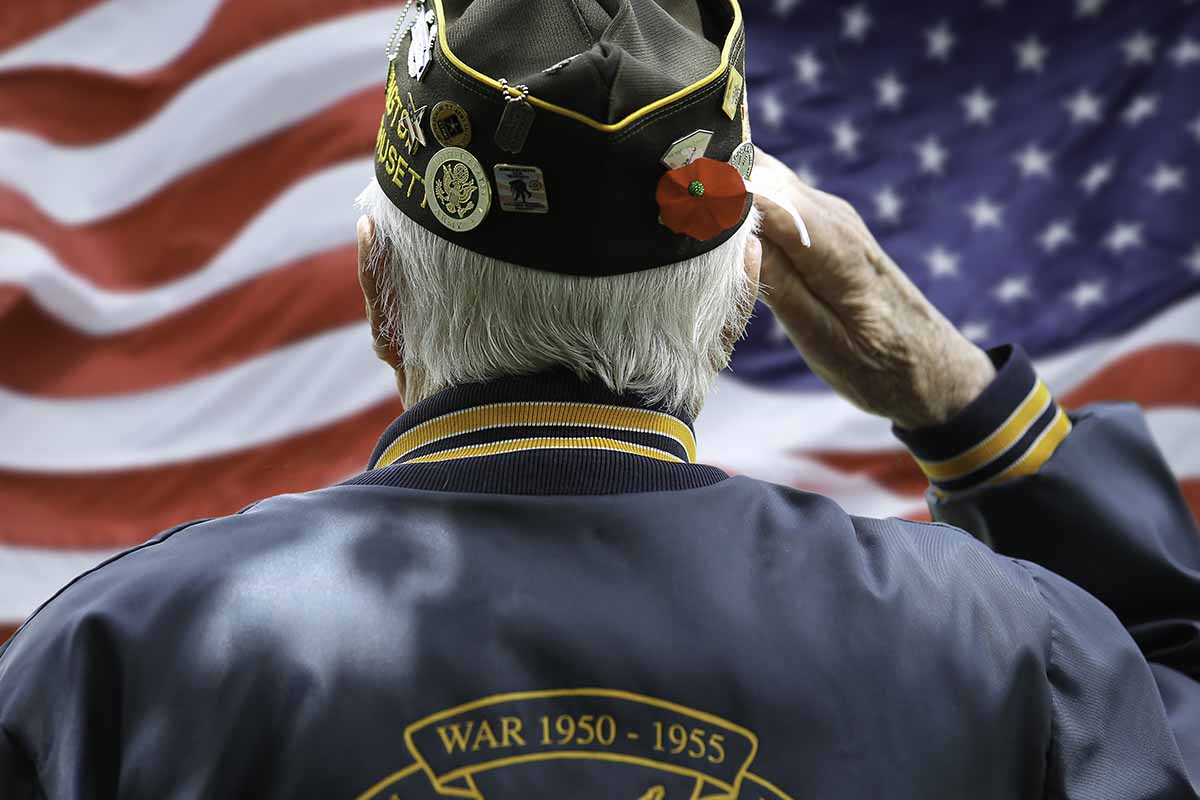It can literally pay for seniors and families to understand VA benefits as there is the potential to garner thousands of dollars every month to help subsidize the cost of senior living expenses. Surprisingly, many vets are not aware of this significant funding that is available. With millions of veteran seniors in the nation, this knowledge could do a lot to meaningfully change the lives of so many of our nation’s veterans.
With that, our goal today is rather simple: Better inform seniors and their families, help them to determine potential eligibility, and review the veterans aid programs that are available to help cover the costs of senior living. And here’s one more important item before we get started: VA benefit programs are available that assist veterans’ spouses and dependents as well, so be sure to investigate VA benefits thoroughly and use them to their full advantage.
VA Benefit Eligibility
The main requirement for those considering VA benefits is that they must have served at least 90 consecutive days (older veterans) of active duty (military, naval or air service) with one day during wartime. Younger vets entering active duty after September 7, 1980 generally must have served at least 24 months or the full period for which they were called to active duty, with at least one day during wartime.
The VA considers wartime to be:
- World War II: December 7, 1941 to December 31, 1946
- Korean War: June 27, 1950 to January 31, 1955
- Vietnam War: August 5, 1964 to May 7, 1975 (veterans who served in the country of Vietnam beginning February 28, 1961 may qualify as well)
- Gulf War: August 2, 1990 to present
The best way to determine the timing of service is with discharge papers. For those who aren’t in possession of discharge papers, they are likely available from the National Archives.
In addition to the service requirements, eligible veterans must be:
- 65 or older, or meet at least one of the below conditions…
- Totally and permanently disabled
- A patient in a nursing home receiving skilled nursing care
- Receiving social security disability insurance
- Receiving supplemental security income
There are also income requirements that need to be met in order to qualify for VA benefits. For assistance determining eligibility and/or applying for VA benefits, use the available resources listed at the bottom of this article.
What Types of VA Benefits Are Available?
Eligible veterans may collect one or more of the three, basic types of VA benefits. Those include:
Basic Pension: According to the Department of Veterans Affairs, this benefit is a tax-free monetary benefit payable to low-income wartime veterans who may need assistance with day-to-day expenses. The pension benefit, available to veterans and their spouses, is based on need and available to those who fall below a yearly limit that is set by Congress, in addition to other parameters.
Aid and Assistance: The Aid and Assistance (A&A) benefit is provided in addition to the Basic Pension to eligible veterans and surviving spouses or dependents requiring the aid and assistance of someone to help care for them on a daily basis. A&A is payable on top of the Basic Pension, however, because the two program qualifications differ, some veterans may qualify for Aid and Assistance even if they do not qualify for the Basic Pension. As a result, veterans should fill out a Basic Pension application form to be considered for A&A as well.
Housebound Benefits: This benefit is also payable in addition to the Basic Pension and is available to eligible veterans who are housebound due to a permanent disability.
What Types of Senior Care Expenses Are Covered?
For those who qualify, VA benefits can provide monthly income to help subsidize the cost of living and care expenses…but there are limits to what VA benefits will cover. For example, Independent Living community costs are rarely included in A&A or Housebound Benefits because it’s presumable that, by living independently, the veteran is able to care for himself (or herself).
Assisted Living and Memory Care expenses, however, are often eligible since assistance is needed and administered on a daily basis. Therefore, veterans (or their families) who are considering or already reside in an Assisted Living or Memory Care community should carefully investigate VA benefit eligibility, and factor in any impact when evaluating the financial considerations of a move or maintaining residence in a senior living community setting.
Other benefit-eligible care services for aging veterans typically include in-home care, adult day services and nursing homes. Plus, separate healthcare benefits (health plans, prescriptions, dental, special needs programs, etc.) are available to eligible veterans. These benefits vary based on each person’s unique case, but could prove helpful in alleviating the financial burden that many seniors and families can encounter with continuing and/or long-term care.
Do Spouses or Dependents Qualify for VA Benefits?
Yes, there are VA benefits available to spouses and dependents of deceased veterans and those of veterans who were permanently disabled by a service-connected disability. Interested family members should research TRICARE, and will find eligibility and application information on the VA.gov website.
Family members who are acting as primary caregiver for a disabled veteran may also be eligible for compensation and/or VA benefits.
Additional Veterans Resources:
- Official Department of Veterans Affairs Website
- Visit Your Local VA Office
- Info for Veterans Spouses & Families
Rittenhouse Village At Northside provides a range of senior living programs to help support a healthy and happy lifestyle for our residents. We also offer several senior living options for our residents to choose from. Contact us today at 317.575.9200 for more information.







